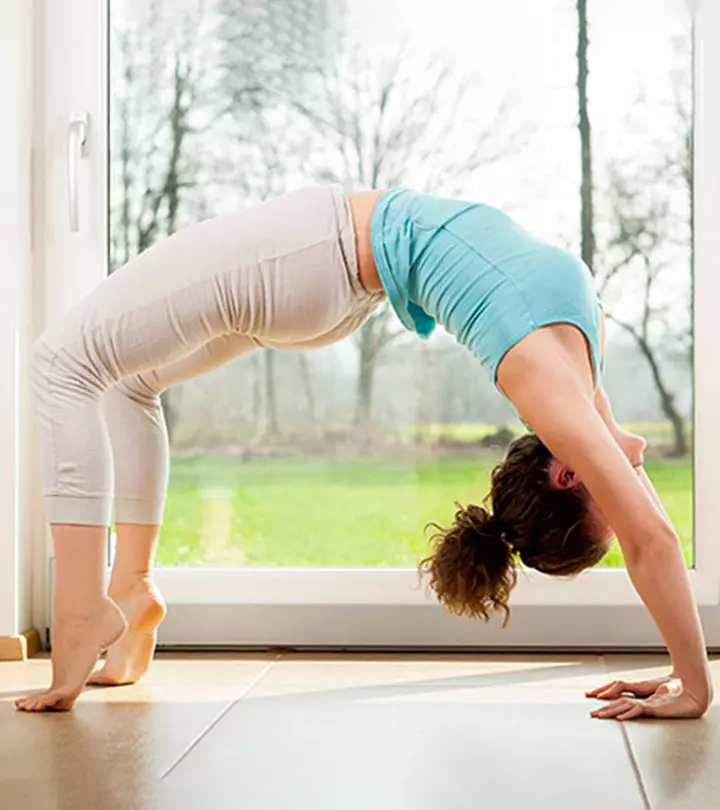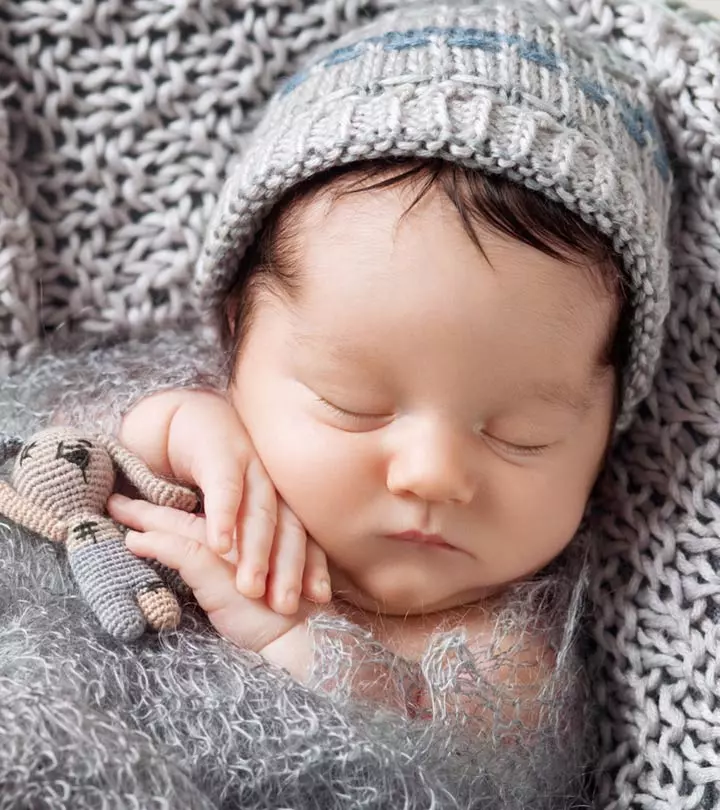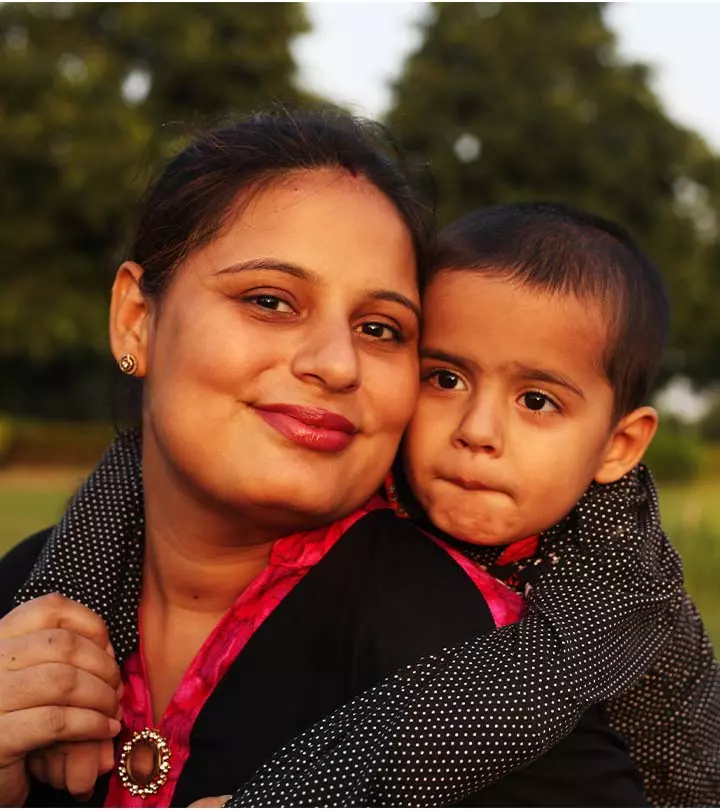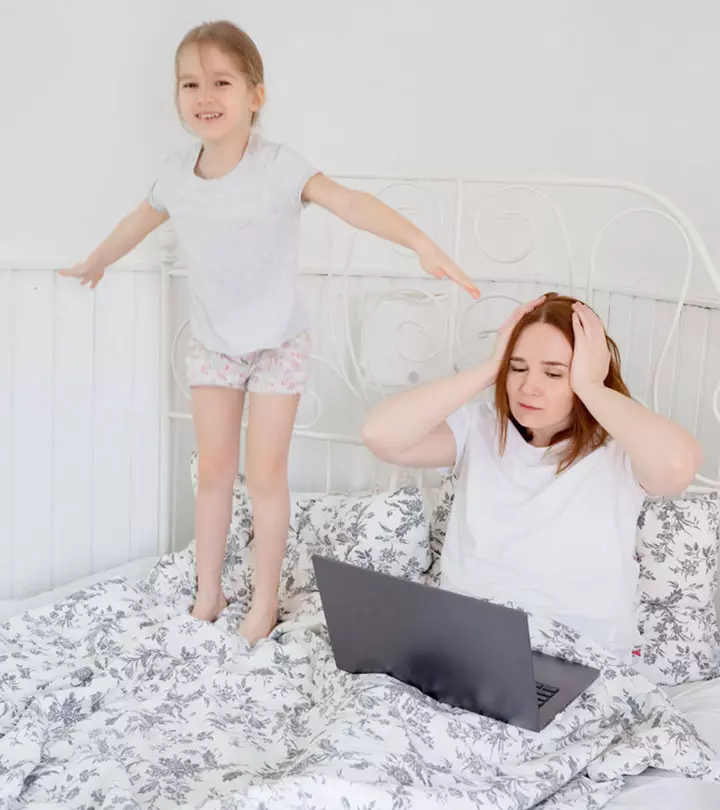

Image: Shutterstock
Pregnancy brings in a lot of hormonal and physical changes in a woman like a morning sickness, bouts of nausea or vomiting. Many women even experience signs of allergies, which they associate with pregnancy. However, chances are that these allergies might have been present earlier too but came to their attention only during pregnancy-related tests.

What To Look Out For
Certain signs of allergic reactions during pregnancy are similar to the usual allergies, like –
- Stuffy Nose
- Coughing
- Headaches
- Wheeze
- Sneezing
- Watery, itchy eyes
- Itchiness in ears and throat
- Skin Rashes
However, as much as they seem similar, there is a lot of difference between actual allergies and pregnancy-related allergic symptoms. Normal allergies generally occur due to a trigger, like pollen, dust, aerosols, or animal fur, etc. These allergies resolve after the trigger is removed. However, during pregnancy, symptoms such as nasal congestion, red eyes, and rhinitis occur without any trigger and are called pregnancy rhinitis (1). These symptoms can generally last throughout the pregnancy only to resolve completely within two weeks postpartum. Pregnancy rhinitis affects almost one-fifth of pregnant women, can occur during any gestational week, and, at times, affect the fetus (2).
Ways To Manage Your Allergies
Certain over-the-counter allergy medications like Zyrtec (cetirizine), chlorpheniramine, Benadryl (diphenhydramine), Allegra (fexofenadine), and Claritin (loratadine) are considered safe during pregnancy (3). But make sure you have a discussion with your OB-GYN before trying these medications in order to put any doubts to rest.
However, if you are still skeptical about using any sort of medications during pregnancy, then there are other ways to manage your allergies, naturally.
Here are a few things you can do to keep your allergies at bay:
Frequently Change Your Outfits: Do this especially if you stepped out either for grocery shopping or for your regular errands. The fine cloth fibers pick up a lot of pollen and allergy-causing substances. Change your clothes immediately after you get home. Also, try not to remain in an outfit for more than two days even if you stay home. The less you expose your body to allergens, lower the chances of you getting allergies.
Step Into The Shower After An Outdoor Sojourn: While changing clothes does help, showering your body and hair every time you get back home from outside also helps. It will remove any remnant allergens that may stick to your body or hair. The oily hair follicles in the scalp also attract a lot of dust and dirt which may worsen your symptoms.
Vacuum Your Home Frequently: Dust mites are one of the major sources of allergies and are harmful even to newborn babies. Despite regular cleaning, dust mites easily settle anywhere, especially on upholstery. It may be a tiring experience, but take it up as a sort of physical activity during pregnancy. It may actually do a whale of good to both you and your baby.
Limit Your Outdoor Time After Sunset/Before Sunrise: It is common sense that the climate does tend to get a little colder than usual (unless it is peak summer) in the absence of adequate sunlight. This time is ripe for all sorts of insects, bacteria, and viruses to multiply rapidly. So, avoid stepping out during foggy early mornings or misty evenings as much as possible, unless it is necessary.
Give Some Sunshine To Your Bedclothes: Yes, the only thing that gets close enough to your skin after your own clothes are those pillow covers, bed sheets, and blankets. Change your bedding frequently, wash, and dry them in the afternoon sun. Make sure they are not damp when you take them off the clothesline. Sleeping on clean and comfortable bedclothes can ease your stress, which can, in turn, help alleviate your allergic symptoms.
We hope that these tips prove helpful to you. However, if you experience severe allergies like rashes all over your body or a choking sensation triggered by rashes, immediately head to the hospital emergency unit. Do not take your condition lightly or ignore your body’s signals. Because, in the end, it is not only you but also your baby who’s at a risk. So, do take care and don’t shy away from shooting those innumerable questions to your doctor – for the sake of your and your baby’s safety. Have a healthy pregnancy!
Community Experiences
Join the conversation and become a part of our nurturing community! Share your stories, experiences, and insights to connect with fellow parents.













